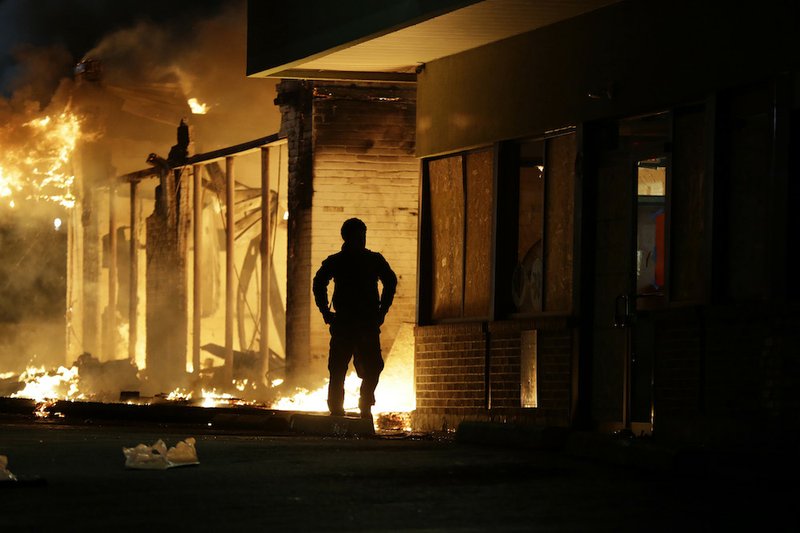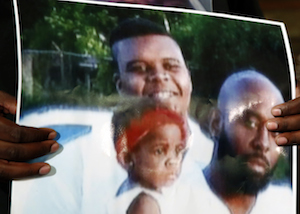FERGUSON, Mo. — Smoke billowed from burned-out buildings and sidewalks were strewn with broken glass Tuesday morning after Ferguson broke out over a grand jury's decision not to indict a white police officer in the killing of unarmed black 18-year-old Michael Brown.
Firefighters doused the blackened remains of some businesses Tuesday morning and at least one building was still ablaze. Some Ferguson stores that weren't burned had smashed display windows, but the streets of the St. Louis suburb were mostly clear.
Monday night's destruction appeared to be much worse than protests after August's shootings, with more than a dozen businesses badly damaged or destroyed. Authorities reported hearing hundreds of gunshots, which for a time prevented fire crews from fighting the flames.
There were 61 arrests in Ferguson overnight, many on charges of burglary and trespassing, St. Louis County Police spokesman Brian Schellman said. There were 21 arrests in St. Louis, where protesters broke some store windows along South Grand Avenue, St. Louis Mayor Francis Slay said.
Jon Belmar, chief of the St. Louis County police, said that unless his agency could bring in 10,000 officers, "I don't think we can prevent folks who really are intent on destroying a community."
The grand jury's decision means that Officer Darren Wilson, who is white, will not face any state criminal charges for killing Brown, whose death inflamed deep racial tensions between many black Americans and police.
Prosecuting Attorney Bob McCulloch said the jury of nine whites and three blacks met on 25 separate days over three months, hearing more than 70 hours of testimony from about 60 witnesses, including three medical examiners and experts on blood, toxicology and firearms.
Read Wednesday's Arkansas Democrat-Gazette for full details.
Reader poll
Do you agree with the grand jury's decision not to indict Ferguson police officer Darren Wilson in the fatal shooting of Michael Brown?
- No
- Yes
363 total votes.

